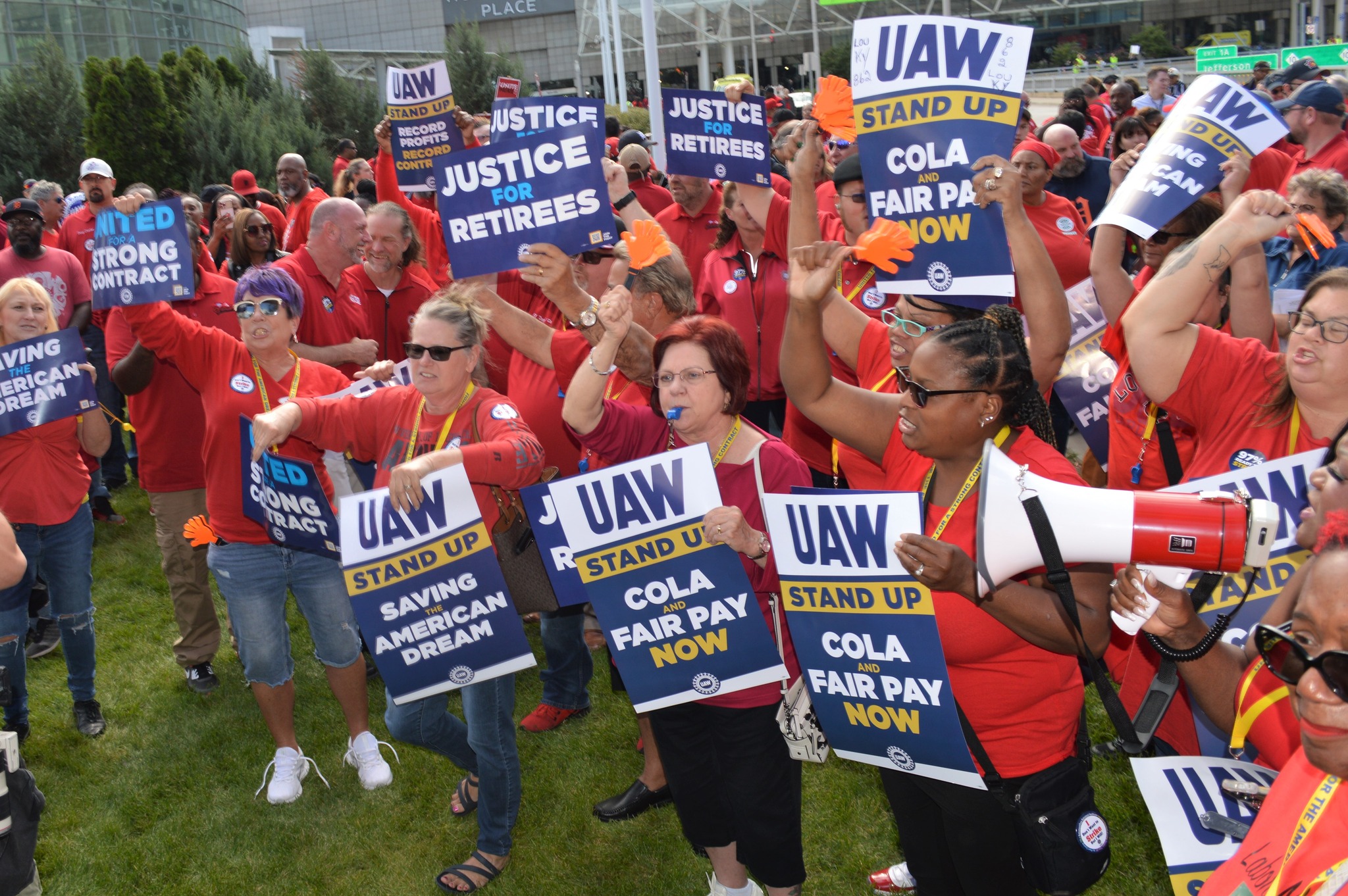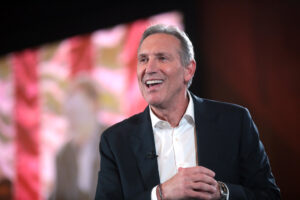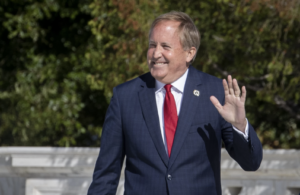Americans of all demographics and political persuasions support the ongoing United Auto Workers strike by a wide margin, according to a new poll of more than 3,600 likely voters from across the country commissioned by More Perfect Union.
Fifty-eight percent of likely voters said they support the strike as opposed to just 17 percent who opposed it, according to the poll conducted by Blue Rose Research between Sept. 14-19. More than a quarter of respondents notably said they weren’t sure.
The polling found that even a plurality of Trump voters and Americans who self-identify as very conservative support the strike by a nearly 2-to-1 margin. Roughly 70 percent of Biden voters and voters who identify as liberal also support the UAW’s decision to strike.
The UAW is in the midst of a historic first simultaneous strike against all Big Three automakers, Ford, GM, and Stellantis. The union has also embarked on a new strategy of striking at individual plants, beginning in Ohio, Michigan, and Missouri, and promising to increase pressure depending on the state of negotiations. More than 12,000 workers, or roughly 8 percent of autoworkers in the union, are currently on strike.
President Joe Biden has said he supports the UAW’s demand for “record contracts” at a time of “record profits.”
The poll indicates that leading Republican presidential candidates are out of step with GOP voters. Former President Donald Trump has vaguely signaled support for auto workers while refusing to endorse their demands and called on members to leave the union if the UAW doesn’t endorse him in 2024.
Sen. Tim Scott of South Carolina said this week that companies should “absolutely” fire workers who go on strike, pointing to the “great example” of former President Ronald Reagan firing more than 11,000 striking air traffic controllers in 1981. Former South Carolina Gov. Nikki Haley has also tied the UAW strike to Biden, saying that when there’s a pro-labor president, “unions get emboldened, and then they start asking for things that companies have a tough time doing.”
South Carolina has become a notoriously friendly site for nonunionized companies thanks to its hardline anti-union posture; fewer than two percent of workers in the state are unionized, the lowest rate in the U.S., according to the Bureau of Labor Statistics. When she was governor, Haley proudly called herself a “union-buster.”
Autoworkers are fighting for wage increases of more than 30 percent, to end employee tiers, and to win a guaranteed right to strike against plant closures. They also want a restoration of benefits, such as retiree healthcare and pensions, that were slashed during the Great Recession and the subsequent auto bailout.
Respondents to the poll were given details of the UAW’s asks and the companies’ offers on the eve of the strike, which included raises between 14 and 16 percent. (Since then, the companies have slightly increased their offers, but the UAW has maintained that they’re insufficient.)
Among those expressing a clear stance on the strike, nearly 80 percent of respondents said they support it, including 80 percent of moderates and more than two-thirds of Trump and self-identified very conservative voters. Support for autoworkers cut across racial lines, but was strongest among Black voters, more than two-thirds of whom back the UAW strike.
The findings are similar to recent polling conducted by Morning Consult, which found a majority of U.S. adults back the UAW’s move to strike, support which has only increased since the strike began Sept. 15. But both polls show that a significant minority share of Americans are still unclear as to where they stand on the strike — and in the coming days and weeks, where they land will make a significant impact on whether the strike’s public support endures.
On Monday, UAW president Shawn Fain announced that if there was no progress made by Friday afternoon, the union would strike at more plants.
“We told the Big Three that September 14 was a deadline, and we meant it…still, the Big Three failed to get down to business,” Fain said in his message. “We’re going to keep hitting the company where we need to when we need to. And we’re not going to keep waiting forever while they drag this out.”



